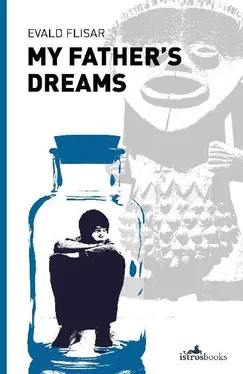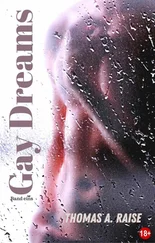Following Eve’s departure I was assaulted by persistent images of water, which filled my mind like a sudden infusion I couldn’t get rid of. All objects, sounds and smells pointed my attention in the direction of the squishy liquid within me. The water was turbulent, coursing through my inner landscape day and night. Occasionally it resembled a large stagnant pool reaching all the way to the horizon, coming alive only if an invisible frog stirred the surface from below, or a drop of moisture fell into it from the leaves of a tree above it. Although I kept pushing the thought away, it was more obvious every day that I was missing something, and that the feeling within me was one of longing: for something lost, for something that had become a part of me and now seemed to be gone forever.
The feeling was reinforced during the first day at school when we had to write a free composition on the subject of “What happened to me during summer holidays”. While navigating the waters of memory I couldn’t help feeling a sense of superiority with regard to my fellow pupils, whose summer months must have been boring beyond belief. As I saw them labouring over their exercise-books I felt a surge of pride at the thought that my summer had been so different, so exceptional, and so mysterious when compared to their boring lives. So deeply was I sucked into the memory of past events that I didn’t even realise I had started to write, and when I finally did I couldn’t tell whether I was recording memories or a dream unfolding there and then. That it was a dream became obvious when I suddenly noticed Eve coming towards me across a meadow. I expected to see Father next, but he refused to turn up, Eve was coming alone, straight toward me. It was like watching a film I had seen before, but reshot on a different location and modified.
As she came up to me she took my hand and gently placed it on her abdomen. “I’m going to be a Mummy,” she said. She pulled me along with her, and the next moment we were in the waiting room of the health centre, with Father standing in the doorway of his surgery as if expecting us. He put his arm around Eve’s waist and lifted her onto the examining table. She was naked. It was only now that I saw her hugely swollen belly. She pulled up her legs and opened them wide. Father put a plastic glove on his hand and reached deep inside her, rummaging around as if looking for something. Eve lay without moving, with her eyes fixed at the ceiling.
“It doesn’t look good,” Father said as he pulled out his hand. He walked to the window and stared at the trees outside. I felt a wave of anxiety. When Father spoke his voice had a gloating edge to it. “Your brother has a frog’s head,” he said. I failed to understand what he was trying to tell me. He turned around and said, “Your little brother will be born with the head of a frog, he will have bulging eyes, and he’ll keep blinking with them!” I could feel the ground parting under my feet. “That’s impossible,” I said.
Still, Father continued in a cold voice, that’s of no importance, I just had to imagine that there is no child, that there never was one and never will be. “But there is a child,” I objected, “the child must be born.” “Don’t be ridiculous,” Father said. “Do you want a brother with a frog’s head, so that people will point at you? We shall put him in a glass jar and hide him in the cellar, for possible scientific research later on. We shall stick a label on the jar, write Abortus on it, and that’ll be that.”
There followed a jump to our house, where Abortus was already padding around, aged three. Mother cooked for him, washed him and took care of his other needs. Father and Eve were no longer there. “We don’t need anybody,” Mother kept saying. “The main thing is that you have a brother, someone to talk to.” But I couldn’t talk to Abortus, because he couldn’t speak. What took me longest to get used to were his tiny eyes, with which he never stopped blinking, just like a frog. When he cried he opened his already wide mouth even wider, and it seemed that his entire head consisted of no more than his mouth, with slight folds of skin where his ears should have been. His voice was unpleasantly shrill and squawking, just like a frog’s, but the only time we heard it was when he cried, which he did very rarely. He was a well-behaved frog-boy, very accommodating and understanding, not at all obdurate or frivolous. In fact, very often he gave the impression of being more a humble, loyal pet than a human being.
What I found strange was that he did not care for toys. Mother and I bought him various dolls, stuffed animals, tin soldiers, squeaking clocks, cars, clattering monkeys, but nothing held his attention for longer than the first polite moment, after which he quietly put each new offer on the floor and stared at his feet as if unhappy that he was unable to please us. I pulled a chair to the window and lifted him onto it. As long as he could look out at the orchard, the hedge, the road, the fields, the woods and the church on top of the hill he was happy. He looked at everything with a mixture of surprised curiosity and thoughtful wonder.
One day he picked up a book and started to read. It was Jung’s Dream-analysis in its Application. He read it with ease and great interest, as if he had been taught reading years ago and had read thousands of books. When he came to the last page he wanted more, so I took him up to Father’s library, where he settled down happily with a pile of books picked at random off the nearest shelves. It was from books that he learned about the wonders of the world outside, just as I had done before him. Then, one day, he suddenly uttered his first words, still hesitant, but clear in intention: he asked to be taken out, to see people, woods, rivers, hills, and to feel the wind on his skin.
Next we were crossing a grassy meadow on our way to the village behind the woods. I had never seen Abortus so happy; he squawked and shouted and squealed and grunted with joy. He couldn’t keep still; he ran this way and that and hopped about, half the time on all fours, very much like a frog. As we reached a small pond I nearly died as I saw him plunge into it and splash about in the water, half the time below the surface. When finally he crawled out he grunted with pleasure. There were frogs in the pond, one of them sitting on a floating oak leaf. He kept looking at it for a long time without blinking. As we continued on our way he seemed tired, lost in thoughts, depressed.
But again he came alive. As we were crossing the fields he suddenly turned to me with a series of questions. Why does the wheat grow? Where does the wind come from? Why don’t people build houses under the ground? Because then, when they died, they wouldn’t have to be buried, he said, they could just stay at home. And then, suddenly: Who is my Father? Who is my Mother? Who am I? Why aren’t apple trees bigger than oak trees? Why are some trees straight and others bent? As we came out of the wood his body began to resemble a walking question-mark.
We came to the village inn, where they knew me well, because whenever Mother didn’t feel like cooking, Father and I had to go there for lunch or dinner. We sat down at an empty table and waited to be served. People stared at Abortus as if transfixed. A woman at the table next to ours started to vomit; then she fainted and had to be carried out. Others followed her, leaving their tables with meals unfinished. Soon the place was empty except for the waiters, Abortus and me. Eventually we were approached by a thick-set man in a dark shirt, the inn-keeper. He tried very hard to keep his eyes off Abortus. It’s like this, he said. We are kindly requested to leave the inn. No two ways about it.
I said that we came to the inn as guests, just like any other guest, all we want is an orange juice each, we are thirsty, and we find the attitude of the serving staff humiliating, to say the least. We demand an apology. The inn-keeper said that he understood my sentiments and sympathised with them, but unfortunately he couldn’t help me; at the end of the day he had to think of himself and his employees. If we’re not willing to meet him halfway and leave, he will have no choice but to call the police who will not shilly-shally but will do what is expected of them. The blame for whatever might happen will be mine and mine alone, because of my stubbornness and defiance.
Читать дальше












